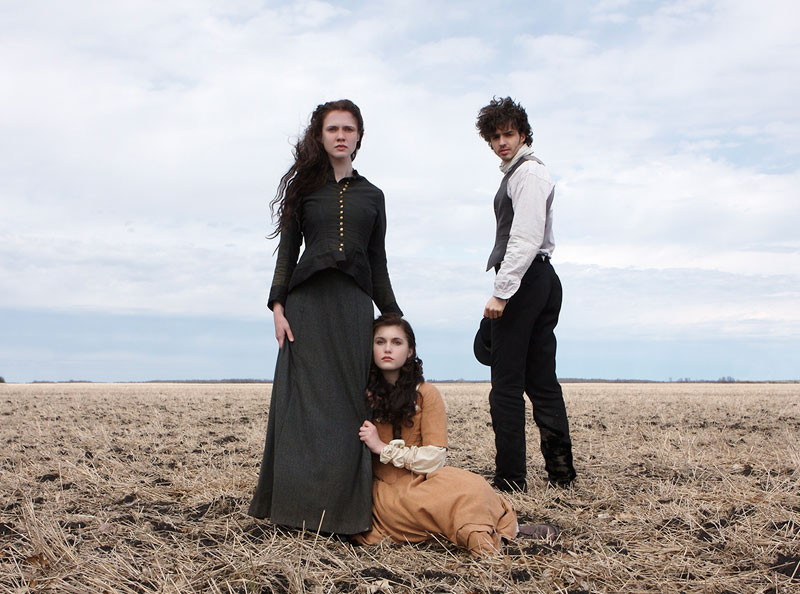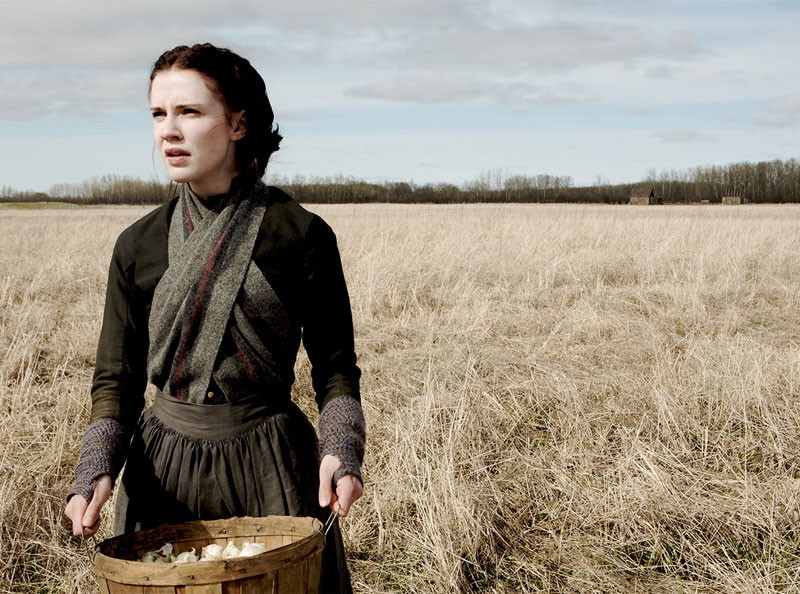Manitoban Gothic
Local filmmaker’s dark and stirring debut is a beautifully-shot historical potboiler
It is a dark night on the prairies. A horse shrieks in its stable. Two young women scurry towards a barn with a lantern to see what the trouble is. As the eldest shines her flickering light on the stallion in dismay, she sees the blood covering its head.
The horse is sick, and it’s their only one. Without batting an eye, she tells her sister to leave. She knows what has to be done.
“I’m so sorry,” she repeats, tears streaming down her face as she raises her shotgun towards the beast and fires.
So begins Black Field, the feature debut from Winnipeg filmmaker Danishka Esterhazy. Set in 19th century southern Manitoba, the film follows the lives of two sisters living alone on the prairies.
Since their father passed away from typhoid years previous, Maggie (Sara Canning) has been forced to take care of her young sister Rose (Ferron Guerreiro) by herself. When a charming, mysterious young French Canadian named David (Mathieu Bourguet) arrives at the isolated farm, seeking a place to stay for the night, it sets off a series of events that will change the girls’ lives forever.
Esterhazy’s tragic tale of lust, desperation and isolation was inspired by the Victorian gothic novels of the Bronte sisters, who, like Maggie and Rose, experienced tragedy firsthand at a young age – their eldest sisters also fell ill and died suddenly.
While Esterhazy wears her dark inspiration on her sleeve, she weaves a perfectly unique and watchable yarn of her own here, creating characters of surprising depth and purpose.
Newfoundland-born actress Sara Canning deserves high praise as well, digging deep into the heart of Maggie, Esterhazy’s protective and strong but vulnerable protagonist. The hopelessness in Canning’s eyes is palpable and captivating, as Maggie desperately fights to hold their lives together when her sister suddenly goes missing and she must seek help from her distant neighbours.
Winnipeg cinematographer Paul Suderman does phenomenal work here as well, with a style reminiscent of the legendary Roger Deakins (No Country For Old Men, Fargo), perfectly capturing the harsh beauty of the prairies.
As the film twists and turns into its tragic climax, it is clear Esterhazy cares deeply about the characters she has created, delicately pushing them towards their destination. Black Field is a perfect example of independent cinema done well: a simple story featuring deeply convicted characters worth investing in, executed with precision and affection. Bravo.
Published in Volume 64, Number 26 of The Uniter (May 27, 2010)








